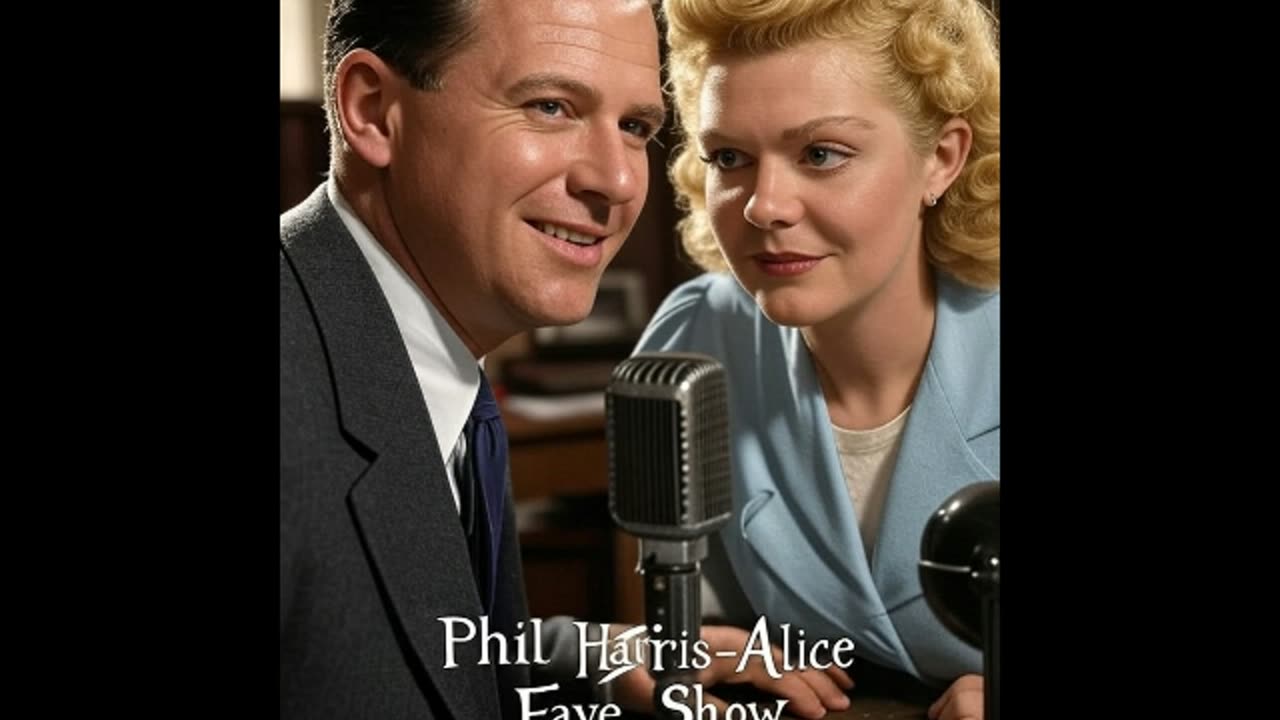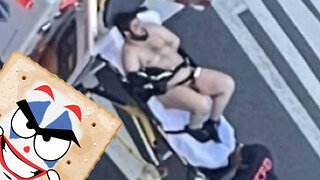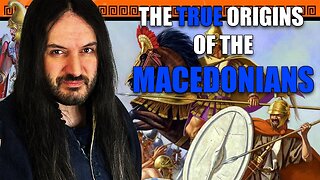Premium Only Content

The Phil Harris-Alice Faye Show Episode: “A Movie for Alice” (November 10, 1946, Episode 7
Episode: “A Movie for Alice” (November 10, 1946, Episode 7)
Cast and Roles
Phil Harris as Himself: The jive-talking, wisecracking bandleader and husband to Alice Faye, portrayed as a bumbling but lovable figure who often gets into comedic trouble. Harris’ exaggerated persona drives the show’s humor.
Alice Faye as Herself: Phil’s glamorous, level-headed wife and a former film star, acting as the voice of reason while engaging in witty banter. Faye’s role balances domestic charm with showbiz flair.
Elliott Lewis as Frankie Remley: Phil’s left-handed guitarist and mischievous sidekick, whose schemes often escalate the comedy. Lewis’ deadpan delivery complements Harris’ antics.
Walter Tetley as Julius Abruzzi: The obnoxious grocery boy, a sarcastic teen who trades insults with Phil, adding youthful energy to the chaos.
Jeanine Roose and Anne Whitfield as Little Alice and Phyllis: Phil and Alice’s daughters, playing minor roles as precocious kids who comment on or complicate the adults’ plans.
Robert North as Willie: Phil’s brother-in-law, a dim-witted character who often frustrates Phil with his incompetence.
Announcer: Likely John Wald or another NBC announcer, delivering sponsor plugs for Fitch Shampoo and introducing the episode with a lighthearted setup.
Music and Sound Effects: Phil Harris’ orchestra, with Harris leading musical numbers, and sound effects like doorbells, phone rings, or crowd laughter to enhance the sitcom atmosphere.
Note: Exact supporting cast details are confirmed via sources like Wikipedia and Old Time Radio Downloads, which note the core ensemble for the 1946–47 season under The Fitch Bandwagon. The episode, part of the show’s transitional phase before its 1948 rebranding, relied on Harris and Faye’s real-life chemistry.
Episode Summary
“A Movie for Alice” aired on NBC on November 10, 1946, as the seventh episode of The Fitch Bandwagon, the precursor to The Phil Harris-Alice Faye Show. This 30-minute comedy-variety episode, referenced in archives like the Internet Archive, likely centers on Phil’s misguided attempt to secure a movie role for Alice, reflecting the show’s domestic and showbiz humor. Without a detailed synopsis or surviving script, I’ve reconstructed the plot based on the title, the show’s 1946 format, and its typical situational comedy style.
Opening: The announcer introduces the episode with a cheerful plug for Fitch Shampoo, setting up the Harris-Faye household’s latest misadventure. Phil Harris’ orchestra plays a lively tune, possibly “That’s What I Like About the South,” followed by a comedic intro with Phil and Alice bantering about their day.
Plot: The story likely begins with Alice reminiscing about her Hollywood career or expressing a desire to return to films, prompting Phil to boast he can secure her a movie role. Phil, ever the overconfident schemer, enlists Frankie Remley to help, leading to a harebrained plan—perhaps contacting a shady producer, crashing a studio, or staging a publicity stunt. Julius, the grocery boy, might mock Phil’s efforts, while Willie’s bumbling interference (e.g., misdialing a studio executive) adds chaos. The daughters, Little Alice and Phyllis, could innocently complicate matters, like spreading rumors about their mom’s “comeback.” The humor escalates as Phil’s plan unravels—maybe a mix-up lands him in a comedic audition or a meeting with a pompous director. Alice, the straight woman, tries to rein in the madness, possibly resolving the mess with her showbiz savvy. Musical interludes feature Phil singing a jazzy number and Alice performing a ballad, like “Rose Room,” showcasing their talents. Sound effects like ringing phones, slamming doors, or studio chatter enhance the sitcom vibe.
Climax and Twist: The climax likely involves Phil’s scheme backfiring hilariously—perhaps he’s mistaken for an actor and forced into a ridiculous screen test, or the “producer” is a con artist. The twist might reveal Alice never wanted the role seriously, preferring her family life, or she quietly secures a real offer, upstaging Phil’s efforts. The resolution sees Phil humbled, with the family laughing off the fiasco.
Resolution: The episode wraps with Phil and Alice sharing a warm, witty exchange, reinforcing their chemistry. The announcer delivers a final Fitch Shampoo plug, and the orchestra plays out with a lively tune. The tone is lighthearted, leaving listeners chuckling at Phil’s antics.
Tone and Style: The episode is a domestic sitcom with showbiz flair, blending slapstick, witty dialogue, and musical numbers. It’s family-friendly for its Sunday evening slot (typically 7:30 p.m. ET), appealing to all ages with its relatable humor and star power.
Note: The plot is inferred from the title and the show’s 1946 style, which focused on Phil’s comedic misadventures and Alice’s grounding presence, as described in Old Time Radio Downloads. The show was still a variety format in 1946, so the episode likely includes more music than later sitcom seasons. If you’d like me to search for audio or fan discussions on X to refine details, let me know
U.S. News on November 10, 1946
Based on historical records and news archives for November 10, 1946:
Postwar Economic Transition: The U.S. was adjusting to a peacetime economy after World War II. On November 10, The New York Times reported rising inflation and consumer goods shortages, as wartime price controls were lifted, causing public frustration.
Midterm Election Results: The November 5 midterm elections saw Republicans gain control of Congress, a rebuke to President Harry S. Truman’s policies. On November 10, newspapers analyzed the GOP’s sweep, focusing on labor unrest and economic discontent as key voter issues.
Labor Strikes: Coal miners, led by John L. Lewis, were on strike, threatening energy supplies. On November 10, The Washington Post reported government efforts to mediate, highlighting tensions between unions and Truman’s administration.
Entertainment Boom: Radio was at its peak, with Variety noting on November 10 that shows like The Fitch Bandwagon drew large audiences, capitalizing on stars like Harris and Faye. Hollywood was also thriving, with films like The Best Years of Our Lives (released November 21) generating buzz.
These events reflected a nation navigating postwar challenges and cultural optimism, with The Fitch Bandwagon offering lighthearted escapism.
International News on November 10, 1946
Cold War Beginnings: U.S.-Soviet tensions were rising. On November 10, news reported Soviet criticism of U.S. policies at the United Nations, with debates over atomic energy control signaling early Cold War divides.
Nuremberg Trials: The Nuremberg Trials were ongoing, with verdicts against Nazi leaders announced in October. On November 10, dispatches covered preparations for subsequent trials, focusing on global justice post-World War II.
Indian Independence Talks: Britain was negotiating India’s path to independence. On November 10, reports noted tensions between Hindu and Muslim leaders, foreshadowing the 1947 partition.
Greek Civil War: Communist insurgents battled the Greek government, with U.S. and British aid supporting the latter. On November 10, news highlighted escalating violence, a precursor to the Truman Doctrine.
These global stories underscored a world in postwar transition, with The Fitch Bandwagon providing a comedic escape from serious issues.
Cultural Impact, If Any
“A Movie for Alice” had modest cultural impact as a single episode of The Fitch Bandwagon, but its context and stars contributed to the show’s broader legacy:
Phil Harris and Alice Faye’s Appeal: The episode showcased Harris and Faye’s real-life chemistry, a draw for audiences familiar with Harris’ role on The Jack Benny Program and Faye’s film stardom. Their portrayal of a showbiz couple navigating domestic life helped transition the show from a variety format to a sitcom by 1948, as noted in Wikipedia, setting a template for later shows like The Adventures of Ozzie and Harriet.
Postwar Escapism: Airing amid postwar inflation and labor strikes, the episode’s lighthearted take on Hollywood dreams offered families a welcome distraction. Its blend of music and comedy, rooted in Harris’ bandleader persona, resonated with listeners seeking fun, per Old Time Radio Downloads.
Showbiz Satire: The plot’s focus on a movie role for Alice tapped into 1940s fascination with Hollywood, poking fun at the industry’s glamour while grounding it in domestic humor. This balance influenced sitcoms that mixed workplace and home life, as seen in fan discussions on Old Time Radio Downloads.
Limited Legacy: As an early Fitch Bandwagon episode, “A Movie for Alice” lacks the fame of later Phil Harris-Alice Faye Show classics like the 1950 Christmas episodes. Preserved in archives like the Internet Archive, it’s valued by old-time radio fans for its Harris-Faye banter, but specific references are scarce due to the show’s variety format in 1946.
Cultural Context: The episode’s portrayal of Alice as a retired star reflects 1940s gender norms, with her domestic role overshadowing her career ambitions, a theme modern listeners may note, per fan comments on Old Time Radio Downloads.
-
 2:06:16
2:06:16
TheSaltyCracker
6 hours agoMedia Justifies Attack on National Guard ReeEEStream 11-26-25
100K254 -
 3:54:35
3:54:35
Mally_Mouse
9 hours ago🎮 Let's Play!!: Stardew Valley pt. 34
45.2K2 -
 18:25
18:25
MetatronHistory
2 days agoThe REAL Origins of the Macedonians
39.8K4 -
 1:22:12
1:22:12
MattMorseTV
6 hours ago $163.12 earned🔴It’s MUCH WORSE than WE THOUGHT. 🔴
137K204 -
 7:22:09
7:22:09
Meisters of Madness
9 hours agoOmega Gaiden - Part 4
34.7K1 -
 2:51:18
2:51:18
Barry Cunningham
9 hours agoBREAKING NEWS: NATIONAL GUARD ATTACK PRESS CONFERENCE AND LIVE UPDATES!
82.5K52 -
 LIVE
LIVE
SilverFox
5 hours ago🔴LIVE - ARC AT NIGHT! COME THRU!
485 watching -
 2:46:09
2:46:09
Joker Effect
5 hours agoCLAVICULAR - What the hell is "Looks Maxing"? Asmond Gold is a Demon. KaceyTron. Steve Will do it.
38.8K3 -
 3:31:22
3:31:22
SlingerGames
5 hours agoLIVE - Wumble Wednesday - BIRTHDAY STREAM!
16.5K3 -
 LIVE
LIVE
StevieTLIVE
5 hours agoWarzone Win Streaking BIG Challenges MASSIVE Hype NO Losses LOCK IN
77 watching